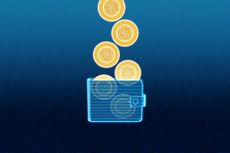Alternative Finance
The latest news, updates and opinions on Alternative Finance from the expert team here at MoneyWeek
Explore Alternative Finance
-

Crypto investors tax warning: providers must now share account details with HMRC
New cryptocurrency rules mean your details will be passed to HMRC for tax purposes, making it harder for investors to avoid taxes on profits. Here's everything you need to know when investing in the digital asset.
By Dan McEvoy Published
-

The steady rise of stablecoins
Innovations in cryptocurrency have created stablecoins, a new form of money. Trump is an enthusiastic supporter, but its benefits are not yet clear
By Bruce Packard Published
-

UK sets out crypto regulatory proposals
The government has tabled legislation that sets out a regulatory framework for cryptocurrencies, while the regulator will consult on balancing innovation and consumer protections
By Dan McEvoy Published
-

Christopher Harborne: Reform UK donor and crypto billionaire
Christopher Harborne came into the spotlight when it emerged he had given £9 million to Nigel Farage's Reform UK. How did he make his millions?
By Jane Lewis Published
-

Circle sets a new gold standard for cryptocurrencies
Cryptocurrencies have existed in a kind of financial Wild West. No longer – they are entering the mainstream, and US-listed Circle is ideally placed to benefit
By Jamie Ward Published
-

Key lessons from the MoneyWeek Wealth Summit 2025
Our annual MoneyWeek Wealth Summit featured a wide array of experts and ideas, and celebrated 25 years of MoneyWeek
By MoneyWeek Published
-

Crypto ETN warning: why adding them to your ISA could be risky
Crypto investors could be exposed to short-term market volatility thanks to HMRC rules if they buy cETNs into a stocks and shares ISA
By Dan McEvoy Published
-

Will the Bitcoin price recover?
Bitcoin prices have fallen from a recent high, but what was once a niche investment now accounts for nearly 2% of all assets globally. What drives the Bitcoin price, and should you invest?
By Dan McEvoy Published
-

What MoneyWeek has learnt in the last 25 years
Financial markets have suffered two huge bear markets and a pandemic since MoneyWeek launched. Alex Rankine reviews key trends and lessons from a turbulent time
By Alex Rankine Published
